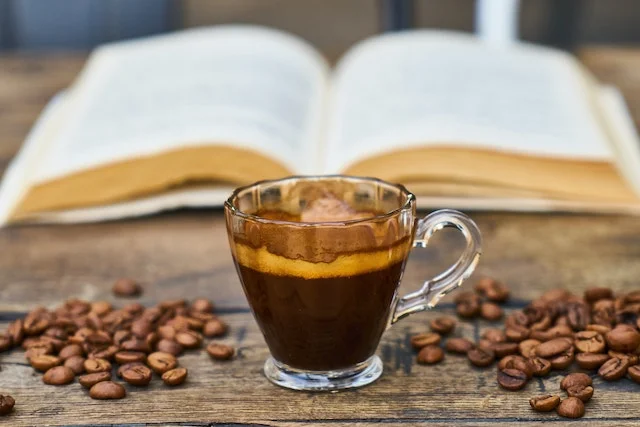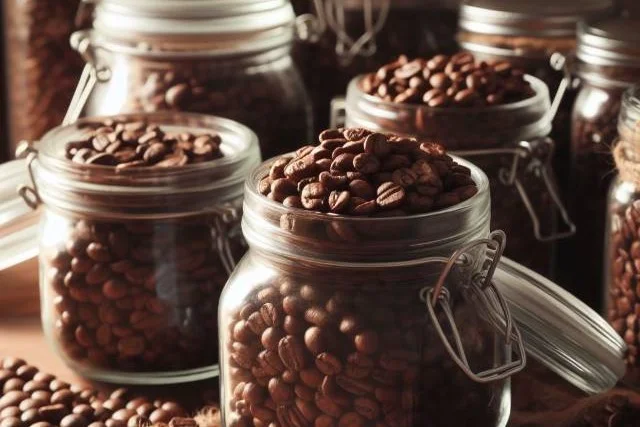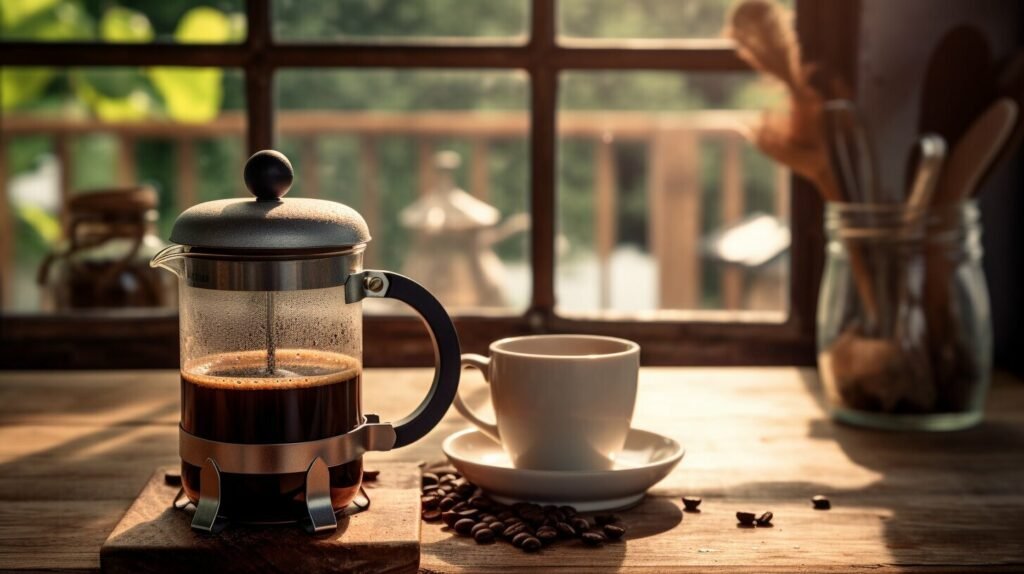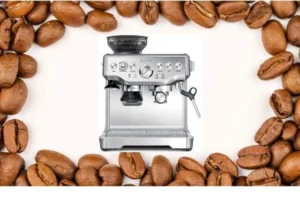Can Coffee Go Bad? How to Extend the Shelf Life of Your Coffee
Coffee is a beloved drink for many people across the globe. The rich, invigorating aroma and flavor make it a staple beverage in many households. But coffee is perishable and can go bad over time. So how can you tell if your coffee has spoiled, and what’s the best way to store it to extend its shelf life? This article has all the details you need.
Can Coffee Go Bad? Key Takeaways
- Causes of Coffee Deterioration: Coffee degrades due to oxygen, moisture, heat, and light, affecting flavor and freshness.
- Signs of Spoiled Coffee: Indicators include dull appearance, rancid aroma, and moldiness, causing discomfort if consumed.
- Storage Tips: Maximize shelf life in an airtight, opaque container at room temperature. Avoid refrigerating beans; freeze only what’s used within 1-2 weeks.
- Brewing Tips: Grind beans just before brewing, follow size and ratio, and clean equipment regularly for a fresh, flavorful cup. Monitor signs of aging for potential food poisoning.
What Causes Coffee to Go Bad?

Coffee is a perishable product that can deteriorate in quality and freshness over time if not stored properly. Four main environmental factors can cause coffee beans or ground coffee to go bad through chemical changes: oxygen exposure, ambient moisture, heat, and light. Understanding how these factors degrade coffee is important for maximizing shelf life with proper storage techniques.
Oxidation
After coffee beans are roasted, their oils come to the surface and are exposed to oxygen in the air. This oxidation causes the aromatic compounds in the beans to slowly degrade into stale, flavorless substances. Since whole coffee beans have more surface area exposed to air, they tend to oxidize faster than ground coffee in terms of losing freshness and flavor over time.
Moisture
Coffee beans and ground coffee absorb moisture easily. Even small amounts of excess ambient moisture can accelerate the growth of mold and bacteria, causing spoilage. The higher moisture content also degrades cell structure and allows staling chemical reactions to occur more quickly. Proper storage requires keeping coffee dry.
Heat
Exposing coffee beans or ground coffee to heat causes the aromatic essential oils and other flavor compounds to break down more rapidly. High temperatures speed up the staling process, shortening the shelf life. This is why proper storage recommends keeping coffee away from heat sources and direct light.
Light
Over time, both UV light and visible light cause chemical changes in coffee that degrade flavor. Specifically, light interacts with coffee’s oils, accelerating oxidative reactions. This is why opaque, light-blocking containers are ideal for storage. Minimizing light exposure preserves freshness.
How to Tell if Your Coffee Has Gone Bad

Here are some clear signs that indicate your coffee is past its prime:
- Appearance: Coffee beans look dull, faded, and dry. Oily patches or spots appear on the surface. Mold is visible.
- Aroma: Coffee gives off a rancid, sour, or stale smell instead of a fresh roasted aroma.
- Flavor: Notes of bitterness, harsh acidity, or moldiness come through. The overall taste is flat and bland.
- Brewed Coffee: The drink smells or tastes off and loses the bright, vibrant notes.
If you notice any of these changes in your coffee, it’s time to discard it and get fresh beans or ground coffee. Consuming spoiled coffee can cause digestive issues and stomach discomfort.
Proper Storage for Maximizing Shelf Life

Proper storage is key to maintaining coffee’s freshness once it’s been opened. Here are some tips:
- Store coffee in an airtight container at room temperature. An airtight environment prevents oxygen exposure.
- Use an opaque, light-blocking container. A dark container prevents light degradation.
- Keep coffee in a cool, dry place away from heat sources like the oven. The ideal temperature is around 70°F.
- Don’t refrigerate coffee beans. The cold, humid environment leads to moisture buildup.
- Freeze only what you plan to use in the next 1-2 weeks. Freezing can make coffee taste stale.
- Buy small batches if you don’t drink coffee daily. Large packages lose freshness once opened.
| Type of Coffee | Shelf Life with Proper Storage |
| Whole beans | 2-3 weeks |
| Pre-ground coffee | 1 week |
| Brewed coffee | 24 hours |
Extending the Life of Opened Coffee Bags
Once you open a bag of coffee, the shelf life drastically reduces as oxygen starts to interact with the beans. Here are some storage hacks to maximize the life of opened coffee bags:
- Transfer beans to an airtight glass or ceramic container. This blocks oxygen and light.
- Use a vacuum-sealed container to remove oxygen. Vacuum sealing buys you several extra weeks.
- Place an oxygen absorber in the container to soak up oxygen. These are readily available online.
- For partial bags, roll or clip bags to minimize air exposure. Press out excess air before sealing.
- Store opened bags in the freezer if you won’t use up soon. Freeze in 2-week portions.
With proper storage methods, you can enjoy optimally flavored coffee for up to 2 months from an opened bag.
Does Refrigerating or Freezing Coffee Extend Shelf Life?
Refrigerating whole coffee beans is not recommended. The cold, humid environment in the fridge can lead to moisture accumulation on beans. This accelerates spoilage.
However, refrigerating pre-ground coffee is fine for short-term storage of around 1 week. The cold helps slow down the staling process.
Freezing coffee beans can extend shelf life longer term since the beans stay fresh at freezing temperatures. Here are some freezing tips:
- Freeze beans in airtight containers or bags designed for freezing. Prevent moisture buildup.
- Portion beans into weekly or biweekly amounts. Only thaw what’s needed.
- Use frozen beans within 1 month for the best flavor. Beans absorb odors when frozen longer.
- Let beans come to room temp before brewing. Do not re-freeze after thawing.
Brewing Tips for Fresh, Flavorful Coffee

Besides proper storage, brewing methods also affect coffee taste. Follow these tips:
- Grind beans right before brewing to maximize freshness.
- Use the correct grind size for your brew method. Too fine or coarse changes the flavor.
- Use the right coffee-to-water ratio. Too little or too much coffee can make it taste bad.
- Brew coffee within 5-10 minutes after grinding for optimal taste.
- Clean equipment regularly to prevent the buildup of rancid oils.
- Rinse paper filters before use to remove paper dust.
With the right brewing practices, you can savor a cup of coffee that tastes freshly ground and full of nuanced flavors.
Can You Drink Coffee That’s Gone Bad?
It’s best not to drink coffee past its prime. Spoiled coffee usually just tastes stale or has an off flavor. But in some cases, it can also have mold and bacteria growth which can make you sick when consumed.
Signs of this include a white film on the coffee’s surface or black/green spots. Consuming such contaminated coffee can lead to food poisoning symptoms like nausea, vomiting, and diarrhea.
Final Thoughts
Coffee can go bad due to factors like oxygen exposure, light, heat, and moisture. But with proper storage methods, precautionary brewing practices, and optimal bean handling, you can prolong its shelf life by many weeks or months. Pay attention to signs of staleness, rancidity, or mold, and don’t drink coffee past its prime. Follow the brewing, freezing, and storage tips above to enjoy your favorite cup of joe for as long as possible.
Can Coffee Go Bad FAQs
Brewed coffee only stays fresh for up to 24 hours when refrigerated in an airtight container. The hot water used for brewing accelerates the staling process. For best results, brew coffee right before drinking.
The “best by” date is simply a recommendation, not an expiration date. If stored properly, whole bean and ground coffee can be enjoyed 1-2 weeks past this date before notable flavor loss occurs. Be sure to assess the coffee’s aroma and do a taste test.
Drinking coffee a few days or weeks past its prime won’t make you sick. The taste just becomes increasingly stale. However, if expired coffee shows signs of mold, bacteria or fungus, consuming it can cause foodborne illness.
Freezing does not damage the essential compounds in coffee beans responsible for flavor and aroma. However, condensation buildup on thawed beans can cause damage. Use airtight containers and limit freezing time to 1 month.
Avoid refrigerating coffee beans. The cold, humid conditions lead to moisture accumulation on beans which damages flavor. Store beans at room temp in an airtight container. Pre-ground coffee can be refrigerated for up to 1 week.








